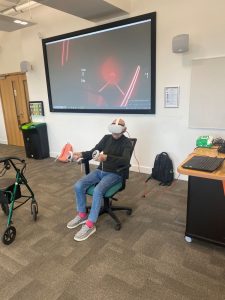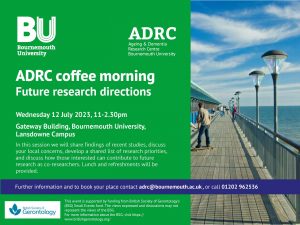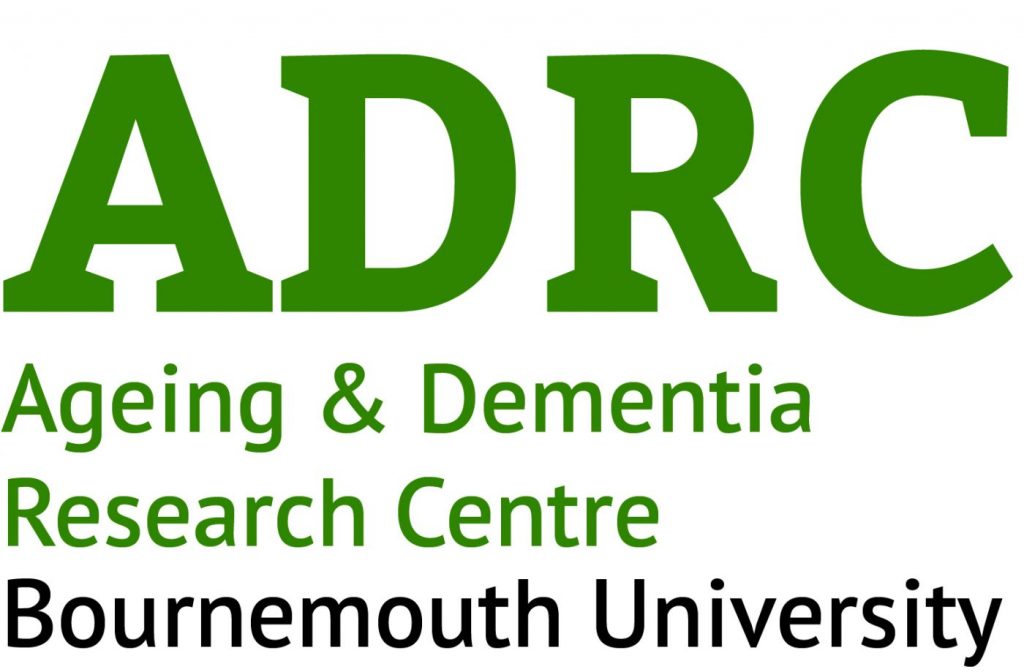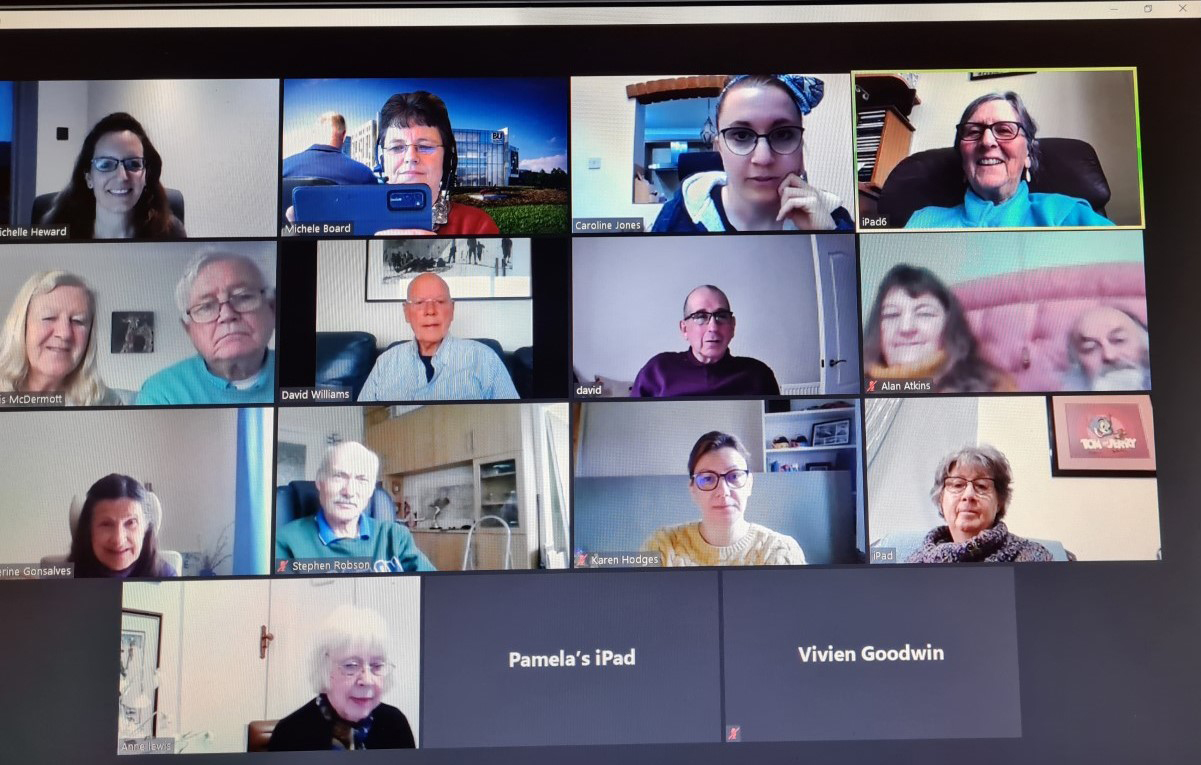The Ageing and Dementia Research Centre are welcoming colleagues from Plymouth University to talk about the ICONIC project (see more details below) and showcase some of the technologies they have created.
The team are interested in talking to any BU colleagues who work on co-design/digital health or immersive technologies and AI so please do come along (and let Michelle mheward@bournemouth.ac.uk know if would like to give a short presentation about your research).
12th February 2025
11-1pm (presentations will be first and then tech showcase)
P222, Poole House, Talbot Campus
ICONIC Project
The ICONIC (Intergenerational Co-design Of Novel technologies In Coastal communities) project is exploring how co-design of novel technologies can support digital inclusion in Cornwall and Devon. The project recruited 99 participants to join intergenerational co-design workshops to create technologies that support access to environment, heritage, and community resources. The technologies include a social game, immersive heritage and underwater experiences, and a voice AI system accessed via a telephone call. The research team will be sharing their insights from the co-design process for each technology and discuss the effects of participation on digital inclusion.
- Dr Rory Baxter is a Research Fellow at the Centre for Health Technology, University of Plymouth, working on the EPSRC funded Intergenerational Codesign Of Novel technologies In Coastal communities (ICONIC) project to address digital exclusion in Cornwall and Devon. The project involves the intergenerational co-design of technologies for supporting access to heritage, environment, and community resources. His previous work includes the ESRC funded GOALD and ERDF funded EPIC projects, which focused on digital health innovation co-design and evaluation to support healthy ageing. Prior to that he completed an EPSRC funded iCASE PhD, exploring human navigation and search behaviour, during which Rory developed VR-based experimental tasks using Unity, which were adapted for online platforms during the COVID-19 pandemic.
- Dr Oksana Hagen earned a BSc in Electrical and Computer Engineering from NCTU (Taiwan), MSc in Computer Vision and Robotics through the Erasmus Mundus ViBOT program, and a PhD in Computing at the University of Plymouth. After a brief period in industry, Oksana joined Aldebaran AI Lab (France) under a Marie Curie Fellowship to focus on research in machine learning. She subsequently contributed to social robotics research for AgeIn project at the University of Plymouth. Currently, she is part of the ICONIC project, developing VoiceAI and underwater telepresence applications through co-design. Her research interests include machine learning, robotics and HCI.
- Dr Marius Varga’s expertise sits at the intersection of game technology and user experience, with a focus on serious games and immersive experiences. Currently, a Research Fellow part of the ICONIC project, using a co-design approach, Marius leads the development of a multiplayer Social Game focused on seagrass conservation and for Extended Reality (XR), he is developing an immersive heritage experience in partnership with National Trust. Marius is also involved in digital health projects such part of Bridging project – focused on using XR training with autistic employees and employers and Glider project – addressing challenges in frailty through robotics, play and immersive technology.
- Dr Linan Zhang holds an MA in East Asian Studies (Japanese) and an MSc in International Development from the University of Edinburgh. She later earned a PhD with Transtechnology Research at the University of Plymouth, where she developed a philosophical framework to ease the paradigm conflicts in knowledge sharing, drawing inspiration from an international health collaboration, a global health crisis, and the development discourse. She is currently an Associate Lecturer for i-DAT, a Research Fellow in Orbital Science, and the Media and Admin officer for the ICONIC Project at the University of Plymouth. Additionally, she serves as an Associate Editor for Leonardo Review.




 The buxton chair has gone! These advances alongside an ageing population with multi-morbidity, increasing frailty, has led to an increase in acuity of care in acute hospital environments and in the community. Nurses need to be critical thinkers, challenging how we care and what is best for each individual patient. Nurses have to deliver excellent hands on care, with expert holistic assessment and evaluation skills. They lead teams and influence how care should be delivered from the bedside to strategic decision making. For those reasons nurses need to be knowledgeable, to critique the evidence as well as create the evidence to support how care should be delivered. That is why a university education, supported by 50% of their course in practice settings, is essential. That is the nurse I want to care for me and my loved ones, compassionate, kind, caring, and knowledgeable. To illustrate this further Michele shared examples of the research she is undertaking of the brilliant nurses and allied health professionals working as ACP’s during COVID19.
The buxton chair has gone! These advances alongside an ageing population with multi-morbidity, increasing frailty, has led to an increase in acuity of care in acute hospital environments and in the community. Nurses need to be critical thinkers, challenging how we care and what is best for each individual patient. Nurses have to deliver excellent hands on care, with expert holistic assessment and evaluation skills. They lead teams and influence how care should be delivered from the bedside to strategic decision making. For those reasons nurses need to be knowledgeable, to critique the evidence as well as create the evidence to support how care should be delivered. That is why a university education, supported by 50% of their course in practice settings, is essential. That is the nurse I want to care for me and my loved ones, compassionate, kind, caring, and knowledgeable. To illustrate this further Michele shared examples of the research she is undertaking of the brilliant nurses and allied health professionals working as ACP’s during COVID19.  During focus groups and 1-1 interviews the research team (Dr Dawn Morely, Dr Janet Scammell, Kelsie Fletcher,@AN4LTH) and 3 practitioners from Dorset Healthcare, Cliff Kilgore, Mary Edwards and Dr Pippa Collins,@DorsetHealth), heard how the ACP’s advocated for patients, led to the development of services, their responsiveness, flexibility and adaptability during an enormously challenging period – it was very inspiring. Their advanced critical thinking skills ensured the care they delivered was holistic and person centred. Hopefully those attending the coffee morning were convinced that a university education for nurses and the new role of ACP’s illustrated the expertise of postgraduate nurses delivering care on the front line.
During focus groups and 1-1 interviews the research team (Dr Dawn Morely, Dr Janet Scammell, Kelsie Fletcher,@AN4LTH) and 3 practitioners from Dorset Healthcare, Cliff Kilgore, Mary Edwards and Dr Pippa Collins,@DorsetHealth), heard how the ACP’s advocated for patients, led to the development of services, their responsiveness, flexibility and adaptability during an enormously challenging period – it was very inspiring. Their advanced critical thinking skills ensured the care they delivered was holistic and person centred. Hopefully those attending the coffee morning were convinced that a university education for nurses and the new role of ACP’s illustrated the expertise of postgraduate nurses delivering care on the front line.










 Dr. Ashraf cited on ‘Modest Fashion’ in The Guardian
Dr. Ashraf cited on ‘Modest Fashion’ in The Guardian NIHR-funded research launches website
NIHR-funded research launches website Academics write for newspaper in Nepal
Academics write for newspaper in Nepal New paper published on disability in women & girls
New paper published on disability in women & girls Global Consortium for Public Health Research 2025
Global Consortium for Public Health Research 2025 MSCA Postdoctoral Fellowships 2025 Call
MSCA Postdoctoral Fellowships 2025 Call ERC Advanced Grant 2025 Webinar
ERC Advanced Grant 2025 Webinar Horizon Europe Work Programme 2025 Published
Horizon Europe Work Programme 2025 Published Horizon Europe 2025 Work Programme pre-Published
Horizon Europe 2025 Work Programme pre-Published Update on UKRO services
Update on UKRO services European research project exploring use of ‘virtual twins’ to better manage metabolic associated fatty liver disease
European research project exploring use of ‘virtual twins’ to better manage metabolic associated fatty liver disease